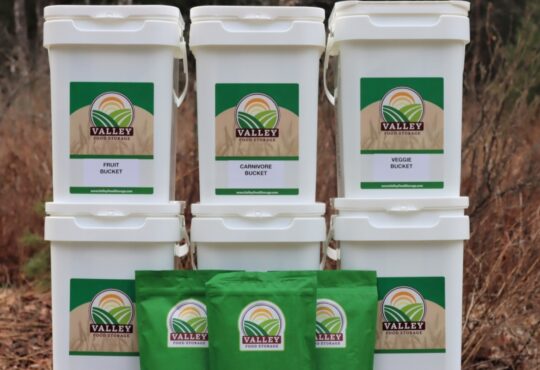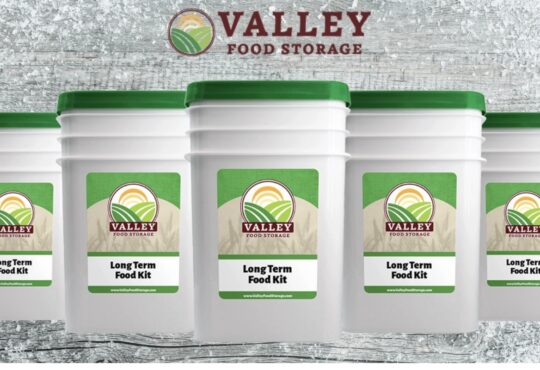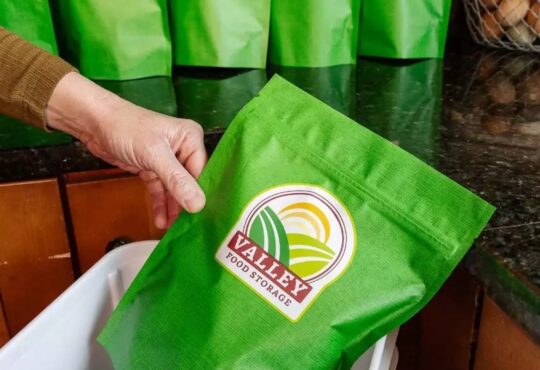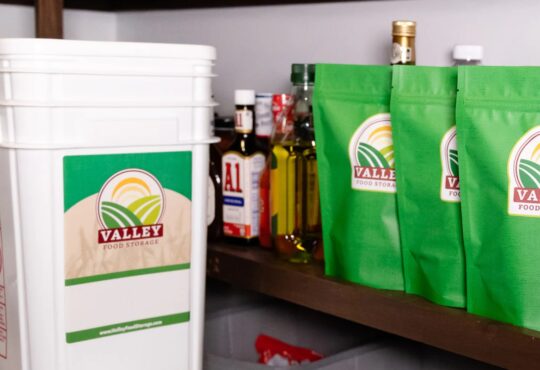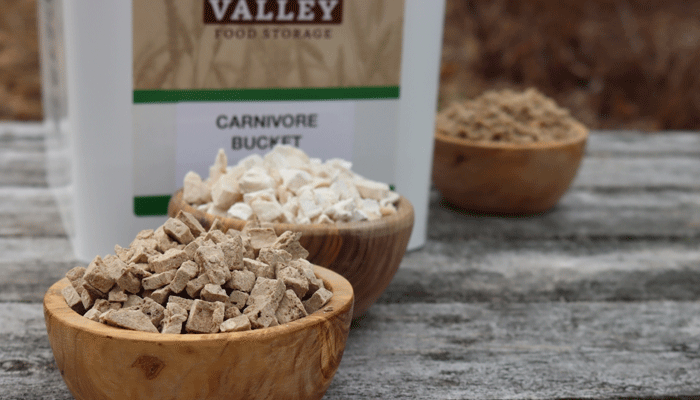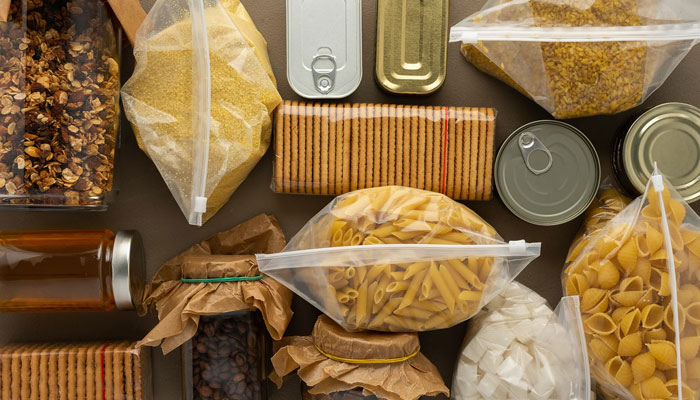
When it comes to building emergency food supplies, there are a variety of options from which to choose. Options range from all homemade, home-packed stores to ready-made survival food kits.
Many of these kits contain freeze-dried foods with long shelf life. They typically require just adding water to prepare, and some don’t even need dishes.
Valley Food Storage
When it comes to emergency preparedness, having a stockpile of food is essential. Whether you’re facing a natural disaster or a personal financial crisis, having a supply of food on hand can provide peace of mind and ensure that you and your loved ones are well-fed during tough times. That’s where Valley Food Storage comes in – offering high-quality, long-lasting food at an affordable price.
For those on a budget, Valley Food Storage Discount offers several options for emergency food and long-term food storage. Their Discount line provides top-quality food at a lower cost, without sacrificing taste or nutritional value. With options ranging from breakfast cereals to entrees and snacks, there’s something for everyone.
One great option for those on a budget is the “Emergency Food Supply Bucket.” This bucket contains 12 servings of delicious, nutritious meals that can be prepared quickly and easily. Perfect for a short-term emergency, this bucket includes meals like creamy potato soup, chicken noodle soup, and creamy vegetable chowder. And at a discounted price, it’s a great way to get started with emergency preparedness without breaking the bank.
For those looking for a longer-term solution, Valley Food Storage offers the “1-Year Supply of Freeze-Dried Food.” This bundle includes a variety of meals and snacks that can last up to 25 years when stored properly. With options like lasagna, beef stroganoff, and even freeze-dried fruits and vegetables, this bundle provides a complete and nutritious solution for long-term food storage.
Overall, Valley Food Storage’s Discount line is a great option for those on a budget who want to be prepared for emergencies. With a variety of options and high-quality ingredients, you can rest easy knowing that you and your family will be well-fed during tough times.
Canned Food
Most emergency preparedness planners recommend stocking a few days’ worth of food supplies in case of an unexpected disaster. Keeping foods that do not require refrigeration, cooking, water, or special preparation in a safe place will make life much easier for your family. The easiest and most reliable type of emergency food supply to have on hand is canned food items that do not need to be refrigerated.
You can find a wide variety of canned food options online or at your local supermarket that will suit your family’s eating preferences and provide essential nutrients, including protein. Many of these items are made with a variety of grains and legumes so that your family will be able to enjoy a varied diet during an emergency.
Many of these foods can be eaten right out of the can or warmed if desired. Canned meats are also a great addition to any emergency food supply. You can purchase beef jerky in bulk to store or choose a more gourmet option like Scout’s smoked wild pink salmon. This wild-caught fish is lightly cured, smoked, and packed in olive oil for flavor.
If you decide to store canned foods in your home, you should make sure they are properly packaged and sealed. This will help to prevent rodents from entering the container and consuming or spoiling the food inside. You can also purchase kits from companies that offer freeze-dried food supplies that include everything you need to prepare meals for a few days or longer. Mountain House, for example, offers a Gluten-Free Survival Bucket kit that includes 22 servings of breakfasts, lunches, and dinners.
If you’re looking to save money on emergency food, long-term foods, freeze-dried foods, canned foods, and more, check out Food & Drinks Promo Codes for great deals on all kinds of foods. Whether you’re stocking up for an emergency or just looking for a good deal, Saving Gain has got you covered. Don’t miss out on these great savings!
Water
In the case of a disaster or emergency, water is the most important thing to have on hand. Human beings can only survive a few days without water before suffering from severe dehydration. A good survival food supply should have at least two weeks’ worth of water for everyone in the household, enough to last a few days without cooking and for use for cleaning and hygiene.
A gallon per day, or 3.8 liters, is the amount of water an adult needs to stay healthy and active. To keep your water supplies ready for a disaster, make sure to store bottled water with a shelf life of up to 10 years and store it in a cool, dry place away from heat sources like sunlight.
While you can build a survival food stash from canned foods, granola bars, and freeze-dried foods, pre-made emergency meals and kits are the best options for convenience and nutrition. These kits provide a balance of everything you need to survive in an emergency, from a basic kit that includes pasta, beans, and rice to more complete meals with chicken, beef, and vegetable options.
There are plenty of survival meal kits on the market, but you need to find one that fits your family’s lifestyle. If you’re looking for a plant-based solution, the Survive2Thrive Vegetarian Preparedness Pail is a great option with organic ingredients that include beans and grains such as quinoa, oats, lentils, sprouted buckwheat groats, and more. These meals can be prepared with warm or cold water and some can be eaten on the go, while others require a longer soak time.
Another popular brand is Mountain House, which offers a variety of emergency meals that come in buckets and are ready to eat or can be reconstituted into hot water. Their products have a shelf life of up to 30 years and are easy to transport in the event of an evacuation.
Ration Bars
Having emergency food supplies on hand can be lifesaving during a big disaster and deeply comforting during a small one. Choosing foods that don’t require refrigeration, cooking, or power is the best way to ensure your family stays healthy and comfortable in an emergency. This is especially true for emergency supplies that can be stored in your go bag.
Ration bars are compact and easy to store, making them a great option for bug out bags. They also have a long shelf-life, ranging from five to 10 years. They’re made with a mix of ingredients that provide both nutrition and calories, including fats, proteins, carbohydrates, and sweeteners. They typically use palm oil as a fat source because it’s calorically dense and solid at room temperature, while sugar and corn syrup add a sweet taste. Many of these ration bars also contain soy, which can be a problem for some people with food allergies or sensitivities.
Some ration bars come precut, which makes it easy to ration them for each person in your family. This is the case with Grizzly Gear’s survival ration bar, which comes in a 3-pack and contains 3,600 calories that are designed to be eaten for days. They’re Coast Guard-approved and have a 5-year shelf-life.
Another popular option is Mayday’s emergency food bar. These emergency rations have a resealable pouch that protects them from moisture and keeps them from spoiling. The bars are Coast Guard-approved and have a 5-year expiration date, making them an excellent choice for your bug out bag or to include in your home’s emergency preparedness plan. They’re also Kosher and Halal-approved. Each bar contains 400 calories and 19 grams of fat, as well as plenty of vitamins and minerals.
Ready-to-Eat Food
The best emergency food supplies include a mix of options for every meal of the day, from soup to pasta to protein bars. Many of these items are ready to eat as is, or just need hot water added. They are usually shelf-stable for years, which is why they are popular choices for basement stockpiles and backcountry survival kits. You can also find some of these meals in convenient buckets, such as the Mountain House Classic Bucket which contains 24 servings of freeze-dried meals ranging from chicken fried rice to beef stroganoff. The food has a 30-year shelf life, so you can store it for decades without worrying about expiration.
However, you should also stockpile some emergency foods that require cooking because they tend to be more nutritious. You can survive on granola bars and bottled drinks for a few days during a power outage, but you will probably feel better if you eat some food that requires more effort to prepare, as well as the comfort of knowing you are eating wholesome foods. You should also keep salt, herbs, and seasoning packets in your stash because they can add a lot of flavor to canned foods and powdered drink mixes.
If you are a plant-based eater, consider this emergency food supply from Survive2Thrive that contains 40 days’ worth of individually vacuum-sealed foods like beans, quinoa, oats, and sprouted buckwheat groats. It weighs 36 pounds, which is a bit more than some other products on this list, but it contains a much wider array of nutrient-rich foods and offers the option to add your grains for more variety if desired. The food has a 25-year shelf life and comes in a compact bucket that is easy to store.
Nutrient Supplements
During an emergency, it’s important to think about meeting basic nutritional needs. You should always have a multivitamin/mineral and some dietary supplements on hand to fill in shortfalls in nutrients. Some dietary supplements are even recommended for those with nutrient-specific needs such as vitamin D, omega-3, calcium, or magnesium.
Most people’s main priority for their emergency food supplies is calories – they need a lot of them to keep themselves energized during an emergency. Calorie-rich foods like granola bars, protein, and jerky, and instant noodles & mash are all good choices for an emergency food supply.
Another great option is freeze-dried meals. Whether you prefer to add these foods to your basement stockpile or keep them in a bug-out bag, they are easy to store and can provide an ample amount of calories and nutrients in a pinch. Just add water to rehydrate them and you’ll have a tasty meal ready in minutes.
Lastly, it’s also wise to stock up on cooking-required emergency items like pasta, rice, dry beans, and peanut butter. These foods tend to have a longer shelf life than ready-to-eat foods and can be used in a variety of different ways.
Keeping the right emergency food supplies on hand can make the difference between having a miserable disaster and having an incredibly comfortable one. To help you find the best emergency foods for your situation, I’ve listed my top 10 emergency supplies every household should have. Be sure to also pick up a few forms of water storage and purification to ensure you can always have access to clean, healthy drinking water in an emergency.
Conclusion
Having emergency food supplies is crucial for every household. By stocking up on non-perishable items, water, and essential nutrients, you can ensure your family’s safety and well-being during an unexpected crisis. Remember to rotate your supplies regularly and keep a well-stocked emergency kit on hand. With these supplies, you can have peace of mind knowing that you’re prepared for any situation.



